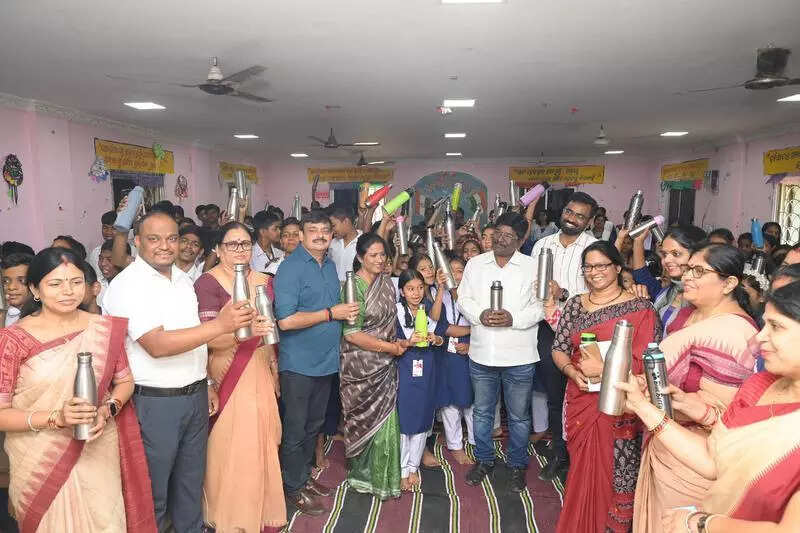Zero waste drive starts in 10 city schools | Bhubaneswar News

Bhubaneswar: To check waste litter and promote in situ conversion of waste into compost in schools in the capital city, Bhubaneswar Municipal Corporation (BMC) on Monday launched the ‘zero waste school‘ drive by taking 10 schools on a pilot basis.
The school teachers and students will set examples on how to ensure zero waste in the institutions so that the practice percolates down to household levels. Also, the BMC has roped in a private party to take compost making out of the daily waste on the school premises. BMC will bear the cost of setting up the units. “We took 10 schools as zero waste ones initially to see how successfully we are able to sensitise students on waste handling. By targeting schools, we will be indirectly reaching out to the communities so that the zero waste concept is followed at the household level also,” said BMC deputy commissioner Manaranjan Sahu.
On Monday, mayor Sulochana Das, BMC corporators, and officials held a sensitisation camp at a school to kick-start the drive. The BMC has asked the schools to dig two pits separately for the dumping of dry and wet waste. “In the coming days, we will reach out to various private and govt institutions and offices to promote the zero waste concept. Also, every big school will have its mini compost units,” Sahu added.
BMC now has several micro composting centres (MCC), where wet waste is converted into manure, and material recovery facilities (MRF), where dry waste is processed. The household waste comes to the units through door-to-door collection.
From Sept 1, 2023, residents are able to see the real-time movement of waste vehicles in the Safa app, like commuters view taxi aggregators when they book from the particular app. Since the Safa app has been integrated with the central command centre, real-time feed is sent to the app seamlessly, whereby people can see if a collection vehicle is coming to their locality, when it is coming, and where its current location is.
The school teachers and students will set examples on how to ensure zero waste in the institutions so that the practice percolates down to household levels. Also, the BMC has roped in a private party to take compost making out of the daily waste on the school premises. BMC will bear the cost of setting up the units. “We took 10 schools as zero waste ones initially to see how successfully we are able to sensitise students on waste handling. By targeting schools, we will be indirectly reaching out to the communities so that the zero waste concept is followed at the household level also,” said BMC deputy commissioner Manaranjan Sahu.
On Monday, mayor Sulochana Das, BMC corporators, and officials held a sensitisation camp at a school to kick-start the drive. The BMC has asked the schools to dig two pits separately for the dumping of dry and wet waste. “In the coming days, we will reach out to various private and govt institutions and offices to promote the zero waste concept. Also, every big school will have its mini compost units,” Sahu added.
BMC now has several micro composting centres (MCC), where wet waste is converted into manure, and material recovery facilities (MRF), where dry waste is processed. The household waste comes to the units through door-to-door collection.
From Sept 1, 2023, residents are able to see the real-time movement of waste vehicles in the Safa app, like commuters view taxi aggregators when they book from the particular app. Since the Safa app has been integrated with the central command centre, real-time feed is sent to the app seamlessly, whereby people can see if a collection vehicle is coming to their locality, when it is coming, and where its current location is.
















